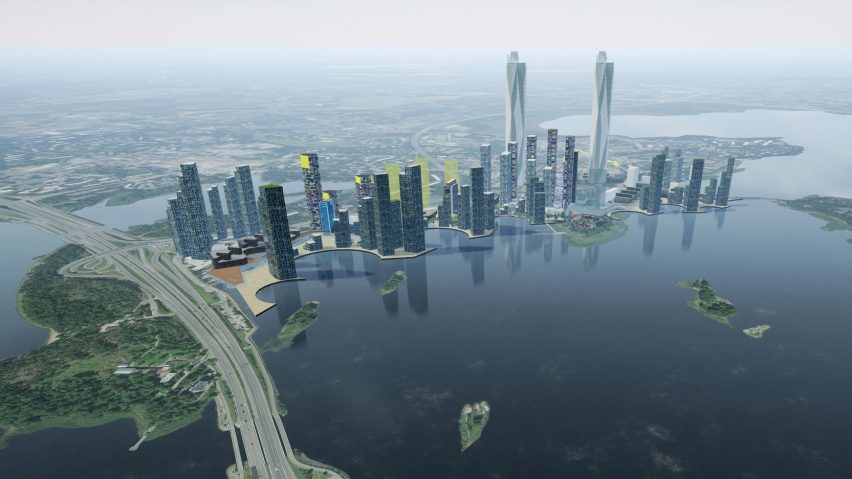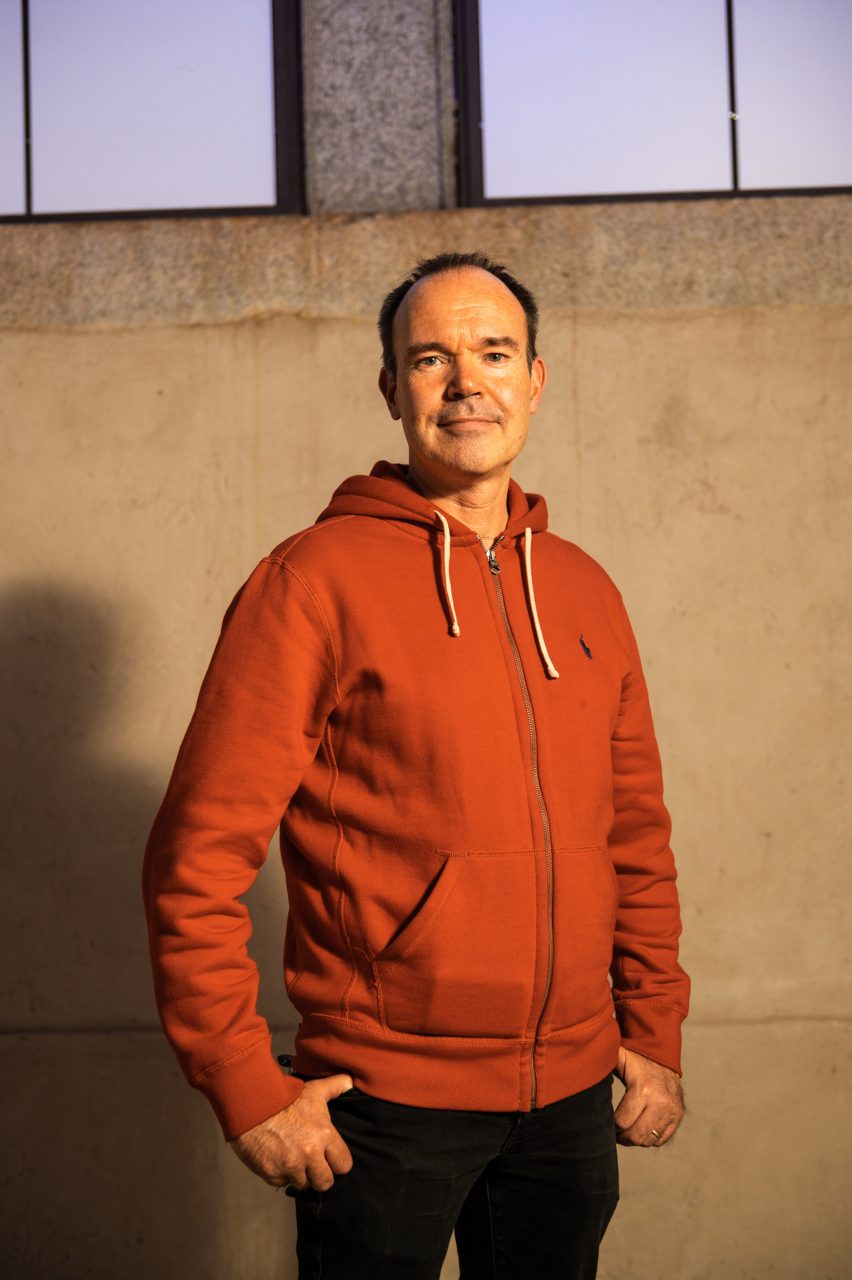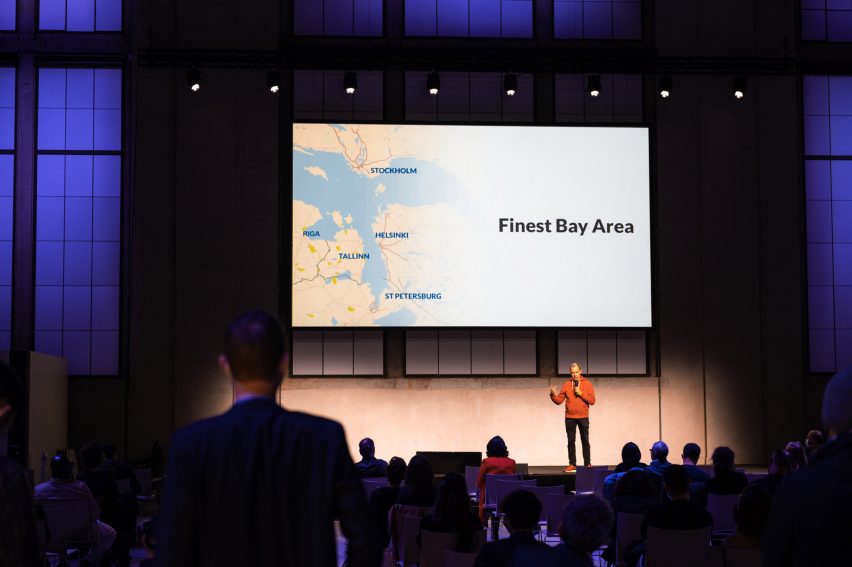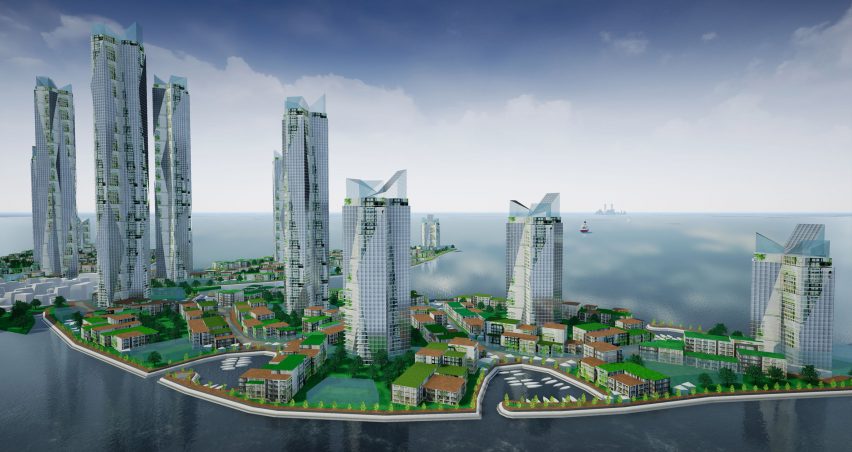
"We're building tunnels not walls" says Angry Birds co-founder behind plan to link Helsinki and Tallinn via undersea tunnel
A €15 billion project to link the capitals of Finland and Estonia via a tunnel beneath the Baltic Sea will create a metropolitan area "much, much better" for tech startups than Silicon Valley, according to CEO Peter Vesterbacka.
The Finest Bay Area project will add 200,000 homes in four new districts, including affordable accommodation for 50,000 people on an artificial island in the Baltic.
The vision is to attract talent from around the world to an area that is already a leading hub for tech startups while avoiding the inequality of Silicon Valley, said Vesterbacka, a former game designer who helped create the Angry Birds app.

"We're not Silicon Valley; we're better much, much better," said Vesterbacka at the Utopian Hours conference in Turin earlier this month.
"That's the starting point. Silicon Valley has a lot of challenges and inequality is one of the biggest ones."
Vesterbacka claimed that Estonia and Finland are already the first and second most successful countries at attracting venture capital and that Helsinki, the Finnish capital, has the highest number of gaming companies per capita in the world.
"We're much more successful than Silicon Valley"
"We have the highest density of startups, the highest amount of venture capital deployed into those startups per capita," he claimed. "We're much more successful than Silicon Valley, much more successful than China."
"It is also critical that we build enough affordable housing at scale," he added, pointing out that San Francisco and other Silicon Valley areas suffer from extremely high housing costs.

But the privately funded project aims to replicate Silicon Valley's success in attracting talent from elsewhere, Vesterbacka said.
"Time after time, all of these success stories coming out of Silicon Valley are because the talent is there," he explained.
"The people who founded the success stories typically were not there to start with," he added. "Most of them actually came from somewhere else. So that's a very important thing. To build a successful ecosystem, we need to create that kind of gravity."
Rail tunnels will reduce travel time to 20 minutes
Vesterbacka previously worked at Finnish gaming company Rovio where he helped create Angry Birds, the most successful gaming app of all time. He is now founder and CEO of developer Finest Bay Area.
The name, which combines the first three letters of both Finland and Estonia, reflects the desire to merge Helsinki and Tallinn into a new pan-Baltic metropolis.
Two parallel rail tunnels with diameters of 17.3 metres will reduce the journey time between the cities from two hours by ferry to 20 minutes by train. One tunnel will be dedicated to passenger trains while the other will carry freight.

"We're connecting Helsinki and Tallinn with a tunnel," Vesterbacka said. "We're making it into one unified metropolitan area with about two million people."
The area could eventually expand to include Stockholm and St Petersburg, Vesterbacka said in his talk at Utopian Hours, which is an annual conference about city-making and urbanism.
The privately funded Finest Bay Area project will link the capitals of Finland and Estonia via a 103-kilometre tunnel, which will be the longest underwater link in the world.
Artificial island to house 50,000 people
New urban developments each housing 50,000 people will be built around four stations at Helsinki Airport, the Otaniemi/Keilaniemi (Otakeila) area close to Helsinki, an artificial island 15 kilometres off the Finnish coast, and at Tallinn airport.
"The goal is to have the tunnel completed and trains running by 24 December 2024," he said.
"All the station areas are being designed to accommodate 50,000 new people moving to the area so we're adding 200,000 people in the Helsinki/Tallinn metropolitan area, which currently has a population of two million people."
"And all the station areas will have their own universities," he added. "We're talking to several universities, mainly in Asia. They will have their European campuses in the station areas. Twenty per cent of the population will be students."
"We're working to increase the number of international university students in Finland to 250,000," he explained. "We're increasing the talent pool. Education is at the core of this. It's super, super important."
We're bringing people together, not keeping them apart"
Vesterbacka told Dezeen that an agreement for the required €15 billion of funding has been signed with London-registered Chinese fund Touchstone Capital Partners.
"Physical construction has not started but we have completed the environmental impact assessment on the Finnish side and the governments have signed the nation-to-nation memorandum of understanding," he added.
Referring to moves elsewhere to prevent immigration by building walls, Vesterbacka said: "We need to fight this kind of wall building. It's super bad to build walls. And it's even worse to build walls for the wrong reasons."
"So we are building tunnels, not walls. We're bringing people together, not keeping them apart."
Utopian Hours took place in Turin, Italy from 8 to 10 October 2021 with Dezeen as media partner. For details of more architecture and design events, visit Dezeen Events Guide.